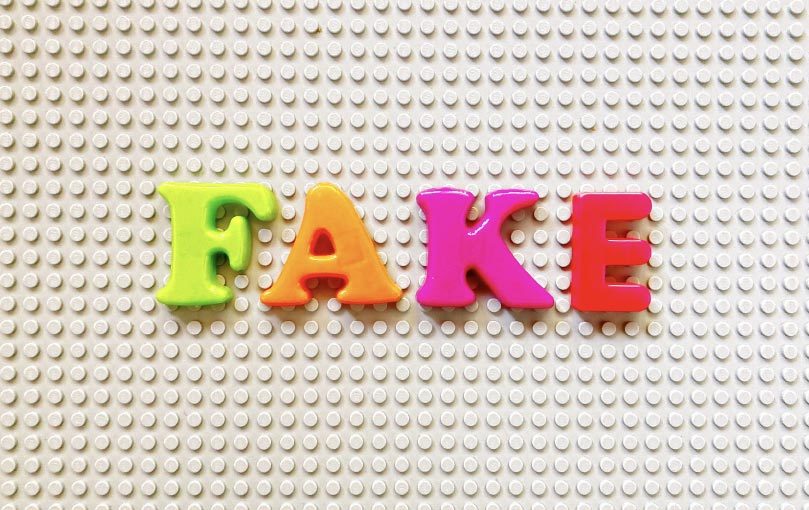Let’s say you’re fluent in Spanish and you need some documents translated from Spanish to English, but you don’t want to do the work yourself and you don’t want to hire an agency. So you decide to go to Upwork, Fiverr or any of the many platforms where you can find freelance translators. To be fair, many of the freelancers that sell their services on platforms are talented, experienced and honest. But there are plenty that are not professional translators, and a few that are out to con you. Indeed, the really bad apples will upload your content to a free service like Google Translate or DeepL and then deliver to you with no further review… and charge you.
Here’s what you may get when you hire a fake:
Grammar and spelling errors
If your document has sloppy mistakes, chances are it wasn’t professionally translated. If your translated text has discrepancies like incorrect subject-verb agreement, spelling and punctuation errors, incorrect verb conjugations and the like, it was not done by a professional and may even have been done by a machine translation engine.
Unnatural phrasing
Unnatural phrasing refers to awkward or stilted target language that doesn’t flow naturally. This can result when a translator is not familiar with the grammar, syntax and idiomatic expressions of the target language, or when they try to preserve the exact words and structure of the source language. I was in Costa Rica last week, and a sign inside a car read “Colóquese el cinturón,” which in U.S. English is expressed as “Wear your seatbelt.” The translation below the sign was a literal translation that said “Place the belt.” I knew what they meant, but that’s an example of stilted, unnatural language that probably came from Google Translate or from someone whose English is not fluent.
Another example of unnatural phrasing is words that are out of order or incorrect use of verb tense, prepositions or colloquial expressions. These can all impact the meaning and flow of the text, and a translator who’s unfamiliar with the target language may not get these right.
Cultural inaccuracies
Cultural inaccuracies can impact the clarity, tone and meaning of the text. Some common examples include:
- Incorrect use of idioms. Idioms are expressions that are unique to a specific culture and may not have a direct equivalent in another language. A translator who is unfamiliar with the target culture may translate an idiom literally, resulting in an incorrect or confusing translation.
- Inaccurate cultural representations. Translators may not be familiar with cultural references or expressions that are unique to a specific culture. For example, a translator may not recognize the significance of a cultural holiday or custom, resulting in an inaccurate or even offensive translation.
- Inappropriate use of humor. Humor is often culturally specific and can be difficult to translate accurately. A translator who is not familiar with the target culture may not understand the nuances of humor, resulting in a translation that’s not funny and may even be offensive.
- Incorrect use of formal or informal language. The formality of language can vary greatly between cultures, and a translator who is not familiar with the target culture may use these tones inappropriately and potentially offend the end user.
- Inaccurate representation of gender or cultural norms. Cultural norms and attitudes toward gender can vary greatly between cultures, and a translator who is not familiar with the target culture may use language that is inappropriate or offensive.
If you’re considering hiring someone particularly for highly specialized content like legal or financial text, or to translate into a language you don’t understand, protect yourself by doing the following:
Check credentials
Research the individual you are considering. Does this person have a website that lists references? Check them to make sure the translator is legitimate.
Check for membership in professional associations
Is the translator a member of a reputable organization, like the American Translators Association (ATA)? Not all professionals join or even obtain ATA certification, but when dealing with an unknown, it’s better to be safe. True, membership doesn’t guarantee quality, specialized knowledge or even reliability, but most members of any reputable trade association abide by their code of ethics and care about their professional reputations.
Ask for samples
Have the potential translator submit samples of previous work. Keep in mind that a true professional will not share anything confidential… and if they do, that’s another warning sign. Also be aware that if the translator is a fake, he or she will take work from the Internet or even create a fake sample using Google Translate.
Oher ways to vet translators include asking for proof of degrees and licenses, insurance coverage, and a physical address and phone number.
When looking for a translator, it’s important to carefully evaluate the person’s experience, credentials and expertise to ensure that you get the quality you’re looking for and that you don’t end up wasting your time and your money.





